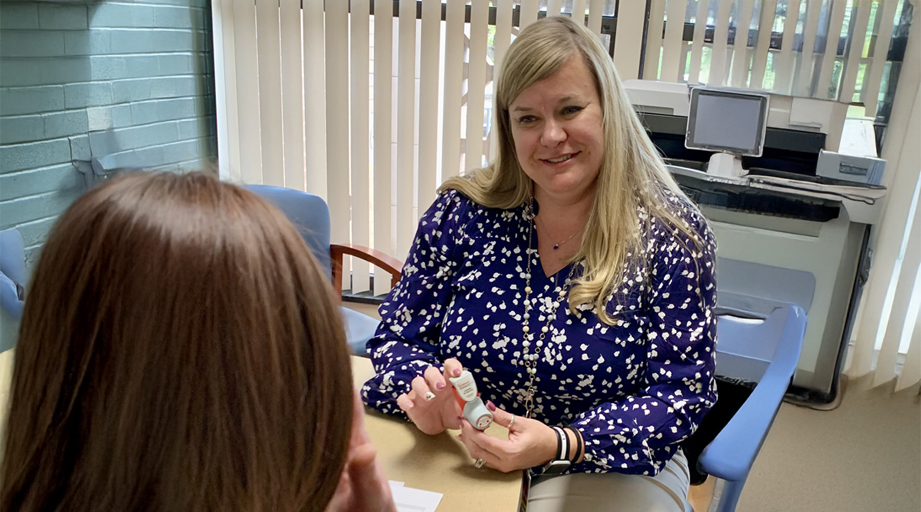
ASHP Chief Executive Officer Paul W. Abramowitz, ASHP Chief Operating Officer Kasey Thompson, members of ASHP’s Government Relations Office, and ASHP member Suzanne Nesbit, clinical pharmacy specialist in pain management and palliative care research at the Johns Hopkins Hospital, met with the special assistant to the president for Veterans Affairs and staff from the Office of National Drug Control Policy and Domestic Policy Council on May 11 to discuss pharmacists’ role in opioid use disorder (OUD) treatment and the provision of medication for opioid use disorder (MOUD).
ASHP also met with White House officials on Friday to discuss the ongoing COVID-19 response. Today's meeting emphasized the role of pharmacists in MOUD and highlighted barriers to expanded access. Specifically, the meeting addressed:
- The Role of Health-System Pharmacists in MOUD Treatment: ASHP highlighted the value that pharmacists bring to care teams through their ability to manage complex transitions of care for patients struggling with OUD. Additionally, ASHP underscored the need to leverage pharmacists’ services to expand patient access, including for veterans and rural or underserved populations.
- Mitigating Disparities in OUD Treatment: Dr. Nesbit gave a firsthand perspective of providing OUD services in an ambulatory care setting, and shared her experiences with care models that effectively engage pharmacists. ASHP emphasized that regulatory barriers such as X-waiver requirements inhibit MOUD expansion. ASHP expressed appreciation for the recent loosening of the X-waiver education requirements for certain clinicians but stressed that meaningfully expanding MOUD access will likely require the elimination of all X-waiver requirements.
- Removing Barriers to Expanding MOUD: ASHP urged the administration to remove barriers to expanded MOUD treatment access, including urging the White House to support legislation eliminating the X-waiver, and pushing the Centers for Medicare & Medicaid Services to adopt some of the innovative pharmacist care models used in Department of Veterans Affairs facilities.
ASHP is extremely appreciative of the opportunity to showcase the work of our members. We look forward to continuing to work closely with the White House to advance pharmacists’ role in addressing OUD, expanding MOUD, and improving public health.









